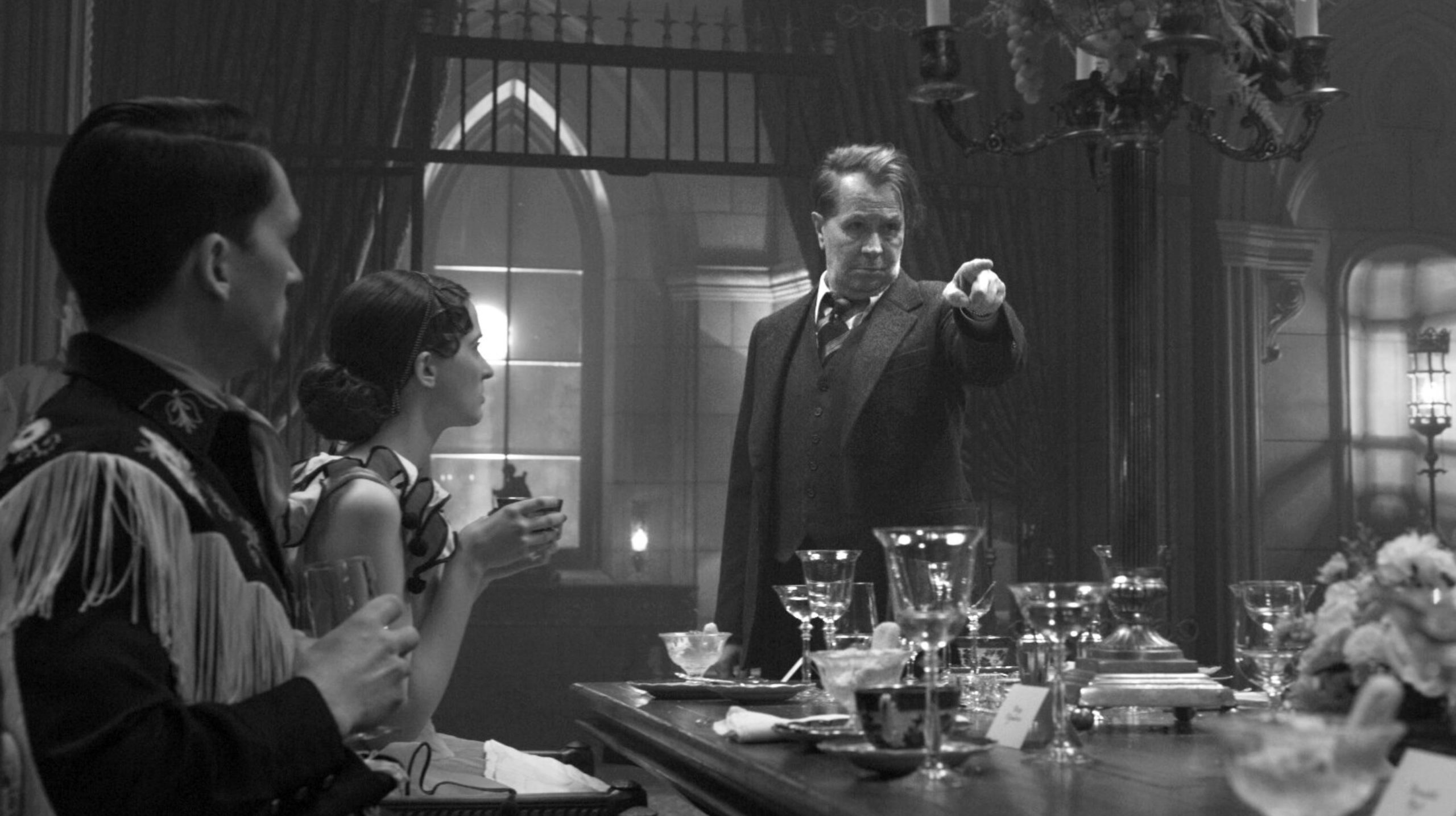Films like Mank are so incredibly rare nowadays, that people dissect them as strange specimens of something that went extinct decades ago. Its artistic rendering of a past era is magnificent, and trailers drove everyone wild at the expectation of reliving the golden era of Tinseltown.
David Fincher makes Mank with the confidence he always holds. Netflix opens the wallet and lets him get away with making an improbable film about Hollywood. This is work of passion by one of today’s most important filmmakers, and it regards one of the most important films ever made. It’s not explosive, or luxurious as you would expect. It’s an honest rendition of a possibility Fincher’s father imagined. The director makes the film as an endearing message to his own father. It’s a beautiful product of love.
Nevertheless, it’s mistaken for a Netflix film supposed to win some awards, and when people dissect this weird film, it becomes entangled in a mess of misconception, great expectations, and the ensuing disappointment of almost everyone.
The film is a retelling of the process Herman Jacob Mankiewicz went through when he was hired as a screenwriter for Orson Welles’ venture into filmmaking. His presence in the industry was shaken by the political turmoil after The Great Depression, and he started writing the script after William Randolph Hearts confirmed he was able to dominate everything he set his eyes on. Hollywood was stricken with luxury AND poverty, and in this scenario, we have Mank, the screenwriter of Citizen Kane, the greatest film ever made. One would expect that such film had to be written under the circumstances of Hollywood and its spotlight.
But the reality of Mank is that it doesn’t glorify the era it portrays. It shows it as a venomous backdrop with many victims and a few winners. This affects Mank as a potential player in a game of power that few dared to play. There’s no doubt of the target his script was fixed on. If Welles did something with then that’s another story to be told.
If you’re watching Mank, you are either interested in Citizen Kane or you wanted to see Fincher’s last film. I don’t see any other reason for watching Mank as an interesting addition to general culture. However, what could be an adaptation of a frantic moment is more of an affirmation of a hypothesis. Welles denied his famous film was about someone specific.
However, Mank shows us otherwise. The monster in his head fed throughout the years and Mank decided to throw a revenge statement against those who ridiculed him. It wasn’t something personal. It was just his way of getting away with it. Sadly, the film doesn’t display much about his decision to be recognized as the sole writer of the film. There’s just one line and it doesn’t seem enough for such an important time in history.
Mank will soon be forgotten amongst some of the more questionable titles available to watch on TV. It’s not a film you will watch over and over again. But that doesn’t mean it’s not important. After all, films are documents. And those documents have the goal of educating. I like to think Mank as a compelling rendition of something we can’t possibly witness. As divisive as it is, there’s no reason to discard it.
It’s an important film, and nobody can deny that.
Rating: 3/4
Editor’s Note: Federico Furzan is an OFCA and Rotten Tomatoes-approved critic.


